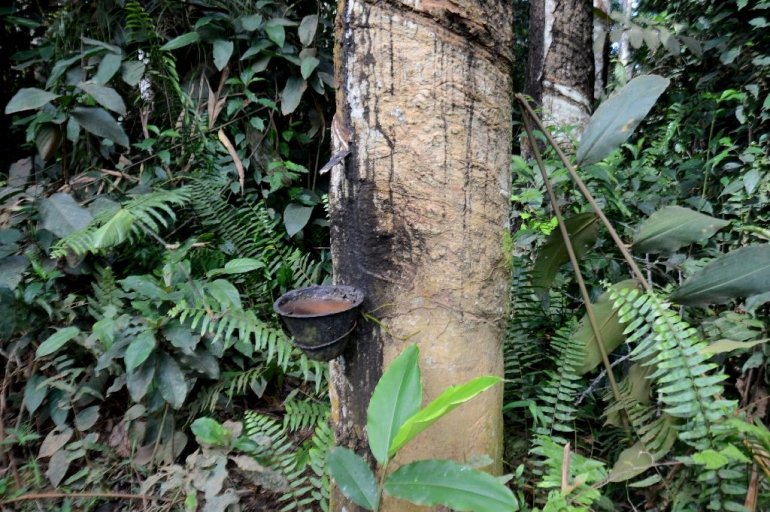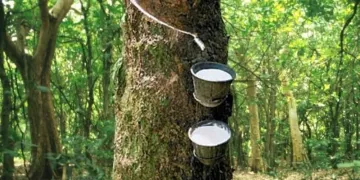CUTS IN rubber exports by Thailand and other producers in the region are on the table to combat plunging prices for the commodity.
 The International Rubber Consortium will hold discussions among its members – including Thailand, Indonesia and Malaysia – on Saturday and Sunday. The grouping of rubber producers is planning to ask all producers to agree to production cuts.
The International Rubber Consortium will hold discussions among its members – including Thailand, Indonesia and Malaysia – on Saturday and Sunday. The grouping of rubber producers is planning to ask all producers to agree to production cuts.
Titus Suksaard, the governor of Rubber Authority of Thailand (RAOT), described the weekend meeting in Indonesia as urgent, with an ordinary meeting to be held late this year. The three neighbours are the world’s biggest rubber producers.
In a previous period of market weakness, ROAT held talks with Thailand’s five biggest rubber exporters and this led to actions that reversed a slide in prices for rubber in the futures market and the rubber sold by growers. The agency called this an example of effective cooperation.
Chaiyos Sincharoenkul, president of the Thai Rubber Association, pointed to the action of a group of large funds for triggering the plunge in rubber prices. The group had made daily purchases of six million tonnes of rubber in Shanghai’s futures market, even though the world output is only 12 million tonnes.
“This is a colossal amount of rubber to purchase. Thai operators do not have enough money to fight against this type of action and we hope the Thai government can step in with assistance, additional to four relief measures that have been approved,” he said.
Prime Minister Prayut Chan-o-cha said the Cabinet yesterday approved the four relief measures for rubber growers. These measures are extensions of previously announced assistance, and the Ministry of Agriculture and Cooperatives will suggest that rubber growers control their production.
“In the past two to three days, the rubber prices have improved. The government has been trying to solve the [low rubber price] problem. The rubber prices are similar to movements in rice prices, which are up and down,” Prayut said.
Chaiyos who is also an executive director of rubber producer Sri Trang Agro-Industry, would like to see the government reinstate quotas for rubber exports.
“With Thailand being the world’s largest rubber exporter, the imposition of a quota for exports at just the right time would be sufficient to drive up global prices,” he said.
In late April, the Natural Rubber Policy Committee agreed to extend a Bt10 billion lending project for farmers to March 31, 2020. It also agreed to offer support for rubber growers for 90 more days, and announced a project to develop agricultural institutions’ capability to achieve rubber price stability. Furthermore, it agreed to seek to maintain rubber price stability to May 31, 2020.
For the Bt10 billion lending project for farmers, the government will subsidise the interest rate for project participants at no more than 3 per cent, with a cap of Bt300 million.
Prices continued their volatility yesterday, the ROAC said. In Hat Yai district of Songkhla, the price of crude rubber sheets dropped by Bt1.73 to Bt55.05 per kilogram, while that of smoked rubber, grade 3 sheets edged up Bt0.35 to Bt57 per kilogram.





























